Filter results
You can narrow down the results using the filters
Audience
Video type
Topics
Our work
Diseases
Year
209 results
-
 02:38
02:38RSV expert video with Dr Linny Kimly Phuong
Infectious diseases paediatrician Dr Linny explains what RSV is and answers frequently asked questions. Talk to your health professional about getting your free RSV vaccine. -
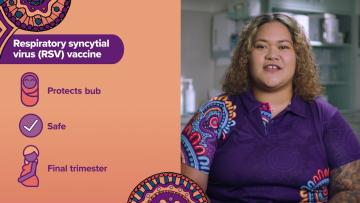 0:54
0:54Maternal vaccinations – RSV
Getting vaccinated against RSV between 28 and 36 weeks of pregnancy protects your newborn baby against respiratory syncytical virus (RSV). Yarn to your midwife or health worker about getting your free RSV vaccination. -
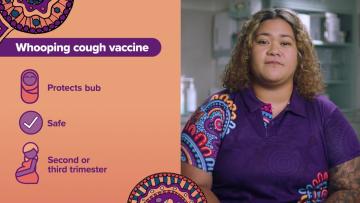 0:50
0:50Maternal vaccinations – Whooping cough
Getting a safe and free whooping cough vaccination between 20 and 32 weeks of pregnancy helps protect bubbas from whooping cough while they're still too young to get vaccinated themselves. Yarn to your midwife or health worker about getting your free whooping c -
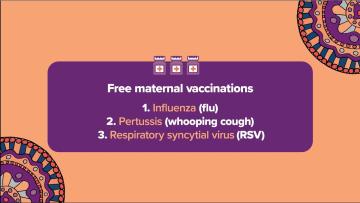 1:04
1:04Maternal vaccinations
Protecting your bub from serious illness starts before birth, with free vaccines you can get while pregnant. These vaccines help protect your baby against influenza, whooping cough and RSV. Yarn to your midwife or health worker about getting your free maternal vaccinations. -
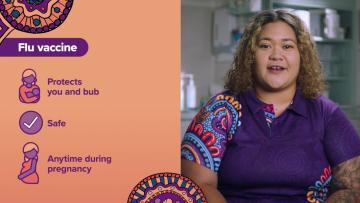 0:49
0:49Maternal vaccinations – Flu
Flu vaccines have been around for decades and help protect you and your bub from serious illness. Yarn to your midwife or health worker about getting your free flu vaccination. -
 02:12
02:12Brenden Hall’s story – chickenpox can be serious in children
Brenden Hall OAM is a 5x Paralympic swimmer. At 6 years old, he contracted chickenpox, resulting in complications that changed his life forever. Chickenpox can be serious in children, and vaccines available under the National Immunisation Program protect kids from life-threatening complications. -
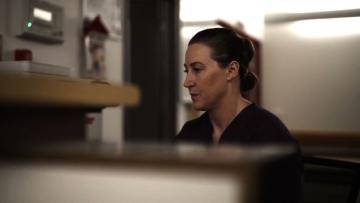 1:59
1:59Dr Jana Pittman explains why childhood immunisations are important
Dr Jana Pittman is a former Australian Olympic athlete and is now a women’s health doctor. As a busy mum of 6 children, Jana tells us how she protects her kids from vaccine-preventable disease with childhood immunisations from the perspective of a mother and a medical professional. -
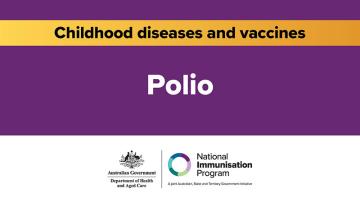 3:04
3:04What is polio? Why childhood immunisation are important
Polio is a rare and contagious viral infection that can cause serious complications in children. -
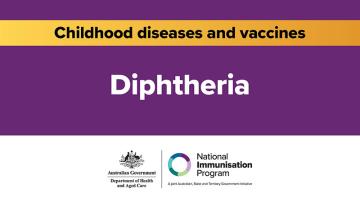 2:27
2:27What is diphtheria? Why childhood immunisations are important
Diphtheria is a rare bacterial infection that can cause serious complications in children. -
 2:25
2:25What is pneumococcal disease? Why childhood immunisation are important
Pneumococcal disease is a bacteria that lives in the nose and throat and can have serious complications in children. -
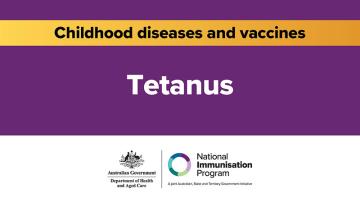 2:31
2:31What is tetanus? Why childhood immunisation are important
Tetanus is a bacterial infection that can cause serious complications in children. -
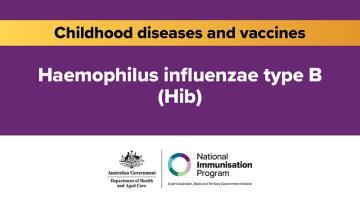 3:10
3:10What is hib? Why childhood immunisation are important
Haemophilus influenza Type B, also known as Hib is a bacterial infection that can cause serious complications in children. -
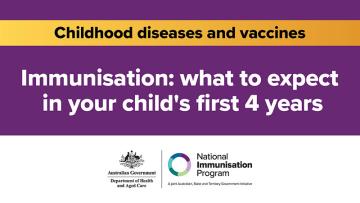 1:55
1:55Childhood immunisation – what to expect in your child’s first 4 years
Vaccines under the National Immunisation Program give children the best protection from serious disease as soon as possible. -
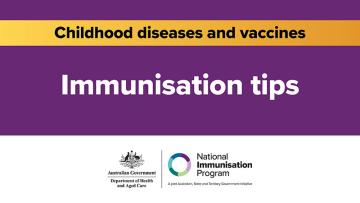 3:10
3:10Tips for your child’s vaccination appointment
Learn about what you can expect before, during and after your child’s vaccination appointment with immunisation nurse, Deidre Brogan. -
 1:50
1:50What is the childhood immunisation schedule?
Hear about when and why children are recommended to receive the vaccines listed on the immunisation schedule with immunisation nurse, Deidre Brogan. -
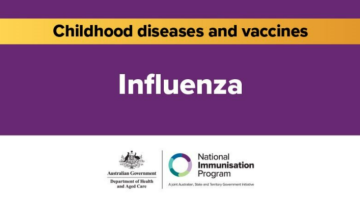 3:25
3:25What is influenza? Why childhood immunisation are important
Influenza is a common and contagious viral infection and can be serious in children.
-
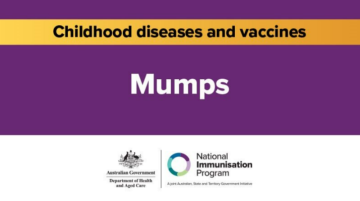 2:56
2:56What is mumps? Why childhood immunisation are important
Mumps is a contagious viral infection that can have serious complications in children. -
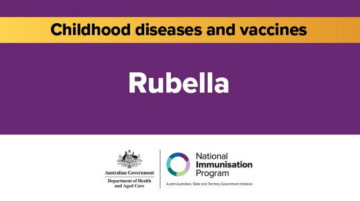 3:18
3:18What is rubella? Why childhood immunisation are important
Rubella is a viral illness that can have serious complications in babies and pregnant people. -
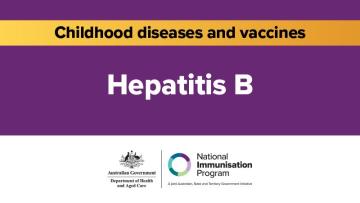 2:52
2:52What is hepatitis B? Why childhood immunisation are important
Hepatitis B is a virus that can have serious complications in children that can be chronic and lifelong. -
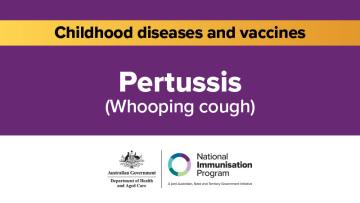 3:28
3:28What is pertussis (whooping cough)? Why childhood immunisation are important
Pertussis, also called whooping cough, is a bacterial infection that can have serious complications in children. -
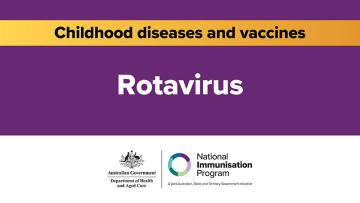 2:35
2:35What is rotavirus? Why childhood immunisation are important
Rotavirus is a viral infection that can be dangerous in babies and children as it can cause serious gastro symptoms. -
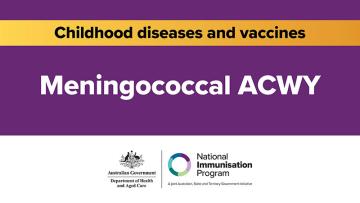 3:46
3:46What is meningococcal? Why childhood immunisation are important
Meningococcal is a contagious bacterial infection that can be fatal in children and requires emergency medical attention. -
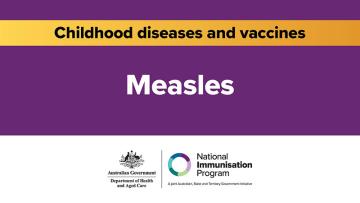 3:03
3:03What is measles? Why childhood immunisation are important
Measles is a highly contagious infection that can cause serious complications in children. -
 3:00
3:00What is varicella (chicken pox)? Why childhood immunisation are important
Varicella, also known as chickenpox, is a highly contagious virus that causes discomfort and can be dangerous in babies and pregnant people. -
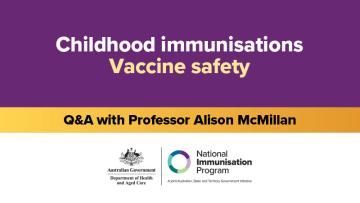 3:00
3:00Childhood immunisations – vaccine safety
Childhood immunisation is a safe and effective way to protect children against serious disease. Vaccines go through many stages of development and testing. Australian Government Chief Nursing and Midwifery Officer Alison McMillan explains how vaccine safety is ensured.
